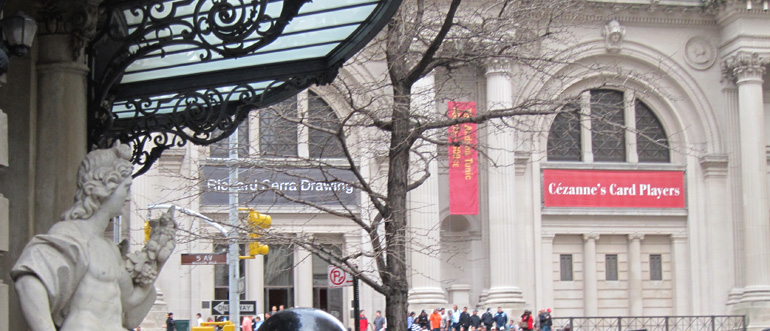
Why is The Enchanted April not more highly regarded, or at least better known? I have loved Mike Newell’s film adaptation for years, and I’ve even seen the Broadway adaptation of the movie, but I’ve steered clear of the book precisely because the name of Elizabeth von Arnim, its author, was so unconnected. She was never mentioned in association with other writers, even in a social sort of way. The cloud of oblivion surrounding her name suggested the sort genteel lady novelist who supports herself with stories for ladies’ magazines. I’m thinking of another Elizabeth, Elizabeth Sanxay Holding, author of the twice-adapted thriller, The Blank Wall. Only not as interesting; Holding writes of blackmail and manslaughter; Arnim, for all I knew, wrote about wistaria  and moonlight. I bought a copy of The Enchanted April finally — I’ll be frank — because it bore the seal of approval bestowed ipso facto on every NYRB republication. Like the novel’s Mrs Fisher, I wanted references, and now I had one.Â
I am going to assume that you know the story; if you don’t, I can’t imagine why you’d be interested in reading this. In case of blessed ignorance, by all means try to start out with the book, trusting that a very entertaining movie lies in wait; you will not like the movie less for its discrepancies and inventions, which in any case are subtle and slight. Very briefly, four English women, two of them unsatisfactorily married in middle-class Hampstead, one a widow with bracing literary associations (Meredith patted her head as a girl), and one a beautiful but disaffected aristocrat, share in the rental of an Italian castle by the sea in April, 1920 or thereabouts. Lotty, the married woman who wants most to get away from her husband is surprised by the almost immediate desire, upon tasting the pleasures of San Salvatore, to invite him to join her. This free-spirited incoherence is only one of the things about Lotty that sets off Mrs Fisher, the literary widow. Meanwhile Rose, the other Hampsteader, pines for the love of her husband, whom she bores but whom she has also taken to scolding; and Lady Caroline, scion of a great (but decadent) house, discovers the pastime of thinking, the subject on her mind being the inexplicable tawdriness of her life to date. Later on, there are men.
Getting round to reading the book was easy; I had only to wait until Kathleen wanted to see the movie again, which she did recently. I dipped into the second chapter, which introduces us to the unhappy married life of Rose Arbuthnot, and found that it was fairly consonant with the film. That was all that I wanted to know at the time; it would take a few days to move from asking how faithful the book was to the movie — and I put it wrong-way thus on purpose — to appreciating the book on its own terms. Or at any rate a few chapters; I needed, without knowing it, a point on which the book and the film diverged, or, in any case, in which the book opened up a view not presented in the film. I became aware of such an opening in the sixth chapter, when Lady Caroline Dester — altogether a different sort of girl from Polly Walker, more ethereal somehow (she’s often described as an angel, whereas the beautiful Ms Walker has the femme fatale‘s dark eyes) — reflects on her impatience with Mrs Fisher.Â
Besides, there was Mrs Fisher. She too must be checked. Lady Caroline had started two days earlier than had been arranged for two reasons: first, because she wished to arrive before the others in order to pick out the room or rooms she preferred, and second, because she judged it likely that otherwise she would have to travel with Mrs fisher. She did not want to travel with Mrs Fisher. She did not want to arrive with Mrs Fisher. She saw no reason whatever why for a single moment she should have to have anything to do with Mrs Fisher.Â
But unfortunately Mrs Fisher also was filled with a desire to get to San Salvatore first and pick out the room or rooms she preferred, and she and Lady Caroline had after all travelled together. As early as Calais they began to suspect it; in Paris they feared it; at Modane they knew it; at Mezzago they concealed it, driving out to Castagneto in two separate flys, the nose of the one almost touching the back of the other the whole way. But when the road suddenly left off at the church and the steps, further evasion was impossible; and faced by this abrupt and difficult finish to their journey there was nothing for it but to amalgamate.Â
Because of Mrs Fisher’s stick, Lady Caroline had to see about everything.Â
This is very fine. “As early as Calais they began to suspect it” — the tone is funny for us while true to the bitterness of the ladies’ discontent. To wrap up the whole business with the clownishly pomposity of “amalgamate” is something that only a very natural writer can do. I began to see that Arnim’s comedy is not so gentle after all. There is something asphyxiated beyond the laughter in the portrayal of Mrs Fisher’s smug but anxious self-satisfaction.Â
Mrs Fisher was well off and had the desire to comforts proper to her age, but she disliked expenses. So well off was she that, had she so chosen, she could have lived in an opulent part of London and driven from it and too it in a Rolls-Royce. She had no such wish. It needed more vitality than went with true comfort to deal with a house in an opulent spot and a Rolls-Royce. Worries attended such possessions, worries of every kind, crowned by bills. In the sober gloom of Prince of Wales Terrace she could obscurely enjoy the inexpensive yet real comfort, without being snatched at by predatory men-servants or collectors for charities, and a taxi stand was at the end of the road. Her annual outlay was small. The house was inherited. Death had furnished it for her. She trod in the dining-room on the Turkey carpet of her fathers; she regulated her day by the excellent black marble clock on the mantelpiece which she remembered from childhood; her walls were entirely covered by the photographs her illustrious deceased friends had given either herself or her father, with their own handwriting across the lower parts of their bodies, and the windows shrouded by the maroon curtains of all her life, were decorated besides with the selfsame aquariums to which she owed her first lessons in sealore, and in which still swam slowly the goldfishes of her youth.Â
Were they the same goldfish?
One cannot be surprised that Mr Fisher turned out not to be all that he was supposed to be.Â
Almost all of the movie’s infidelities concern Lady Caroline, who in the novel is referred to, whenever she is alone, by her family nickname, Scrap. The scene toward the beginning of the movie in which she runs into “Gerald Arundel” — Frederick Arbuthnot’s nom de plume (in the movie; in the book, it’s “Ferdinand”) — at one of her mother’s routs is an invention, although Frederick does indeed travel to San Salvatore to see the beautiful young woman. Lady Caroline winds up with the same man at the end, but the getting there is quite different; but never mind how: the differences all show up Arnim’s gifts as an articulate storyteller. The Enchanted April turns out to be full of riches that could never make it onto film, such as this wonderfully glancing observation about Mrs Fisher:Â
There were many things she disliked more than anything else, and one was when the elderly imagined they felt young and behaved accordingly.
But what really stands out in the book is the “highly virtuous circle,” which begins to go round when Lotty’s husband arrives. As with Mrs Fisher, Mellersh Wilkins is a much meaner creature on the page than any actor in a comedy would care to make him.Â
He fitted in. He was determined to please, and he did please. he was most amiable to his wife — not only in public, which she was used to, but in private, when he certainly wouldn’t have been if he hadn’t wanted to. He did want to. he was so much obliged to her, so much pleased with her, for making him acquainted with Lady Caroline, that he felt really fond of her. Also proud; for there must be, he reflected, a good deal more in her than he had supposed, for Lady Caroline to have become so intimate with her and so affectionate. And the more he treated her as though she were really very nice, the more Lotty expanded and became really very nice, and the more he, affected in his turn, became really very nice himself; so that they went round and round, not in a vicious but in a highly virtuous cycle.Â
It’s important to note that the atmosphere for San Salvatore, while blissful and pleasant, does not induce any personality changes. Mr Wilkins never stops calculating his professional advantage at any given moment; he is always on, always ready to be applied to as a counsellor. What unbends Mrs Fisher — like everything to do with Mr Briggs, the owner of the castle, this is overlooked in the movie — is the appeal of a clever young man who might well be the son she never had. It’s that, and not Lotty’s flaunting of the Victorian proprieties, that causes the grim cast of Mrs Fisher’s outlook to fade. This is all important because in the place of character change we have something more accessible, more voluntary: generosity. That’s what Lotty senses within minutes of waking up on the first morning at the castle; she is overtaken by a desire to share this paradise.Â
“The great thing is to have lots of love about. I don’t see,” she went on, “at least I don’t see here, though I did at home, that it matters who loves as long as somebody does. I was a stingy beast at home, and used to measure and count. I had a queer obsession about justice. As though justice mattered. As though justice can really be distinguished from vengeance. It’s only love that’s any good. At home I wouldn’t love Mellersh unless he loved me back, exactly as much, absolute fairness. Did you ever. And as he didn’t, neither did I, and the aridity of that house! The aridity…“
The vicious cycle, in other words. What may have kept The Enchanted April off the last century’s more stylish reading lists is Lotty’s ideas about love, of which the entire novel becomes an endorsement. It is a profoundly unromantic idea of love. Romance is a matter of satisfied expectations; one must have a picture of it before one can enjoy it. Many readers might carelessly think of Elizabeth von Arnim’s book as a romance, but it is the very opposite of one. Romance is tricky; only certain would-be lovers need apply. But everyone can be generous, and generous to everyone, not just lovers. That’s what Mrs Fisher has learned when, at the very end, she welcomes the kiss of the objectionable Lotty.Â
I could never quite believe that anyone in 1920 would have said, as Lotty does of San Salvatore, that a happy place was a “tub of love,” and I suspected that the
filmmakers made it up. They did not.









